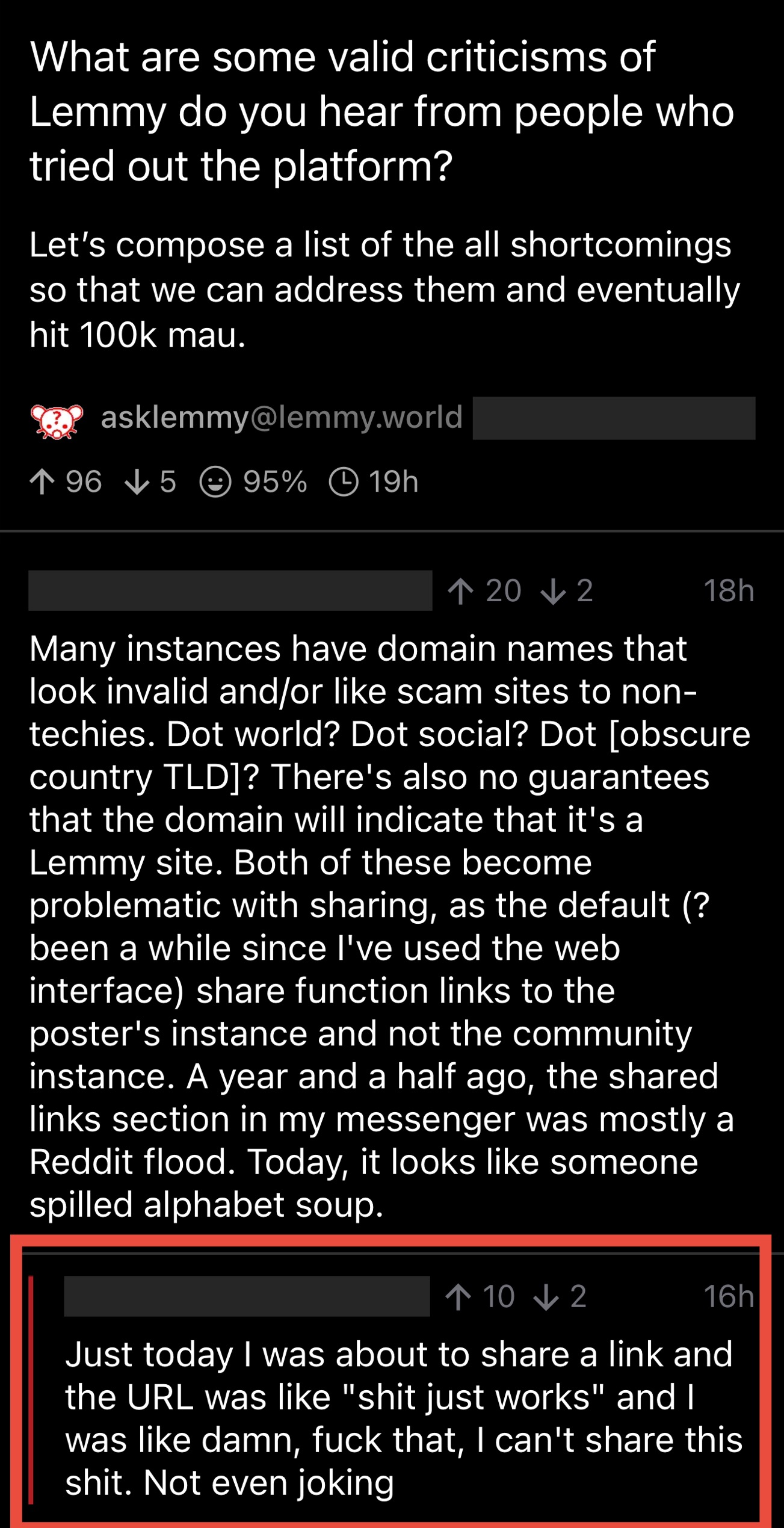this post was submitted on 30 Oct 2024
421 points (98.4% liked)
sh.itjust.works Main Community
8008 readers
1 users here now
Home of the sh.itjust.works instance.
founded 2 years ago
MODERATORS
you are viewing a single comment's thread
view the rest of the comments
view the rest of the comments


The anti-gtld propaganda is spicy hot lately, anything non-.com is a keyboard rage trigger.
A lot of people have uneducated opinions on gtlds, but as a professional DNS engineer: fuck gtlds. They're literally corporate cash grabs that make my work much, much harder and actively make the Internet worse.
Thanks for proving my point lol how do gtlds make your work much, much harder??
😂😂😂
Since you've shown vague interest in my field, allow me to elaborate!
gtlds add a ton of complexity to managing DNS. Every new gtld means more configurations to deal with, which makes things way more prone to errors. On top of that, they make monitoring and security tougher since we have to constantly watch for threats from an ever-growing list of domains—more phishing, more typosquatting, more headaches. It's also a pain when systems don’t play nice with certain gtlds, leading to random bugs or outages we have to troubleshoot. And let's not forget the user confusion. People are used to .com or .org, so we end up fielding extra support requests, trying to explain what these domains even are which means I have to explain repeatedly to executives to NOT use some gimmicky gtld for their new site. When users are upset because "thewebsiteimanage.hot" is a porn site, thats a huge problem. Defensive domains are a nightmare and get worse every time a new gltd is created.
That's a lot of hats for one person to wear, no wonder you're having so much trouble managing your configuration. Sounds like it'd be easier to have a single registry with an open top dot and delegate all that management.
Hm, so to explain the problem better: I work for a large organization that has many sites. Part of that is managing all the names. We have over 500 domains and 75% of them are defensive domains. For example, if I have companysite.com then I also must have companysite.net and .org and .co and so on and so forth. They all redirect to companysite.com
I wonder if companysite. would be more expensive than a portfolio. There's value in identity trust and countless ways to do that but the Internet gravitated to squirreling away domain names.
So, if you want to be a registrar, it is a considerable responsibility, cost, and effort. It also doesn't solve the original problem. Users will still go to companysite.com because that's what they think it is. Trying to tell users to go to companysite. would be damn near impossible without giving a quick DNS 101 lesson. Also, your SEO would be fuuucked. Good luck selling that to any exec. As for your concern with the Internet choosing to go with delegating domains, it's actually critical to how we run DNS. Imagine if every single lookup had to contact the root servers. Every single email. Every single ping. Icann would have to be the size of Google. This also means that requirements for being a tld would be significantly reduced which would greatly compromise the Internet if any of them went rogue.
I guess what I'm weighing is